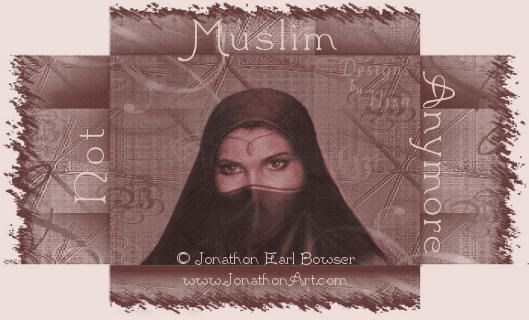Women in Islam Verses Women in the Judaeo-Christian Tradition
I just read this article today: WOMEN IN ISLAM VERSUS WOMEN IN THE JUDAEO-CHRISTIAN TRADITION: THE MYTH & THE REALITY, by Dr. Sherif Abdel Azeem.
In it they are trying compare what is in the Quran with what is in the Bible, mostly the Old Testament, to show that Islam is superior. One problem with that is that the Old Testament was written hundreds or thousands of years before Jesus. Some authors of some books of the bible are unclear or even unknown. Secondly, comparing something that is taken literally with laws in many countries based on it (the Qur'an) and something that is not taken as literally and doesn't have law based on it (the Bible) does not make sense to me. The verses they bring up in the Bible are not used as the basis for law. It's like comparing the laws from over 2000 years ago to the laws now.
Women allegedly have many rights in Islam, but...
"A woman in the Quranic conception has the right to argue even with the Prophet of Islam himself. No one has the right to instruct her to be silent. She is under no obligation to consider her husband the one and only reference in matters of law and religion."
Ok, now this just doesn't happen! Women did argue with the prophet, but try that now and see just what happens. Who are the ones interpreting the Quran and Hadith? Sheiks (Muslim scholars), who are men. Who are the ones making the laws? Mostly Men! Who is in charge of implementing the laws? Men again! Women are not involved in most stages of interpreting or implementing laws in Muslim countries. Yes there are women in Parliaments and other government in Muslim countries, but the ones establish laws that deal with the way of life, esp. anything mentioned by the Qur'an or Hadith (esp. family law), are the Skeihs, the religious leaders or Muslim scholars; who are, you guessed it: men.
Some of the laws in the Qur'an or Islam are out dated. One example is the woman getting half the inheritance of the man. In times when the family would take care of the woman even if her husband died, she didn't need the money, but now, especially in western countries, she will be on her own if he dies or leaves her. Another is the woman's testimony being equal to half of a man's. Women back in the 7th century may not have known much about life or been out in the real world, but that is not the case now. Just because I am a woman doesn't mean that I have a worse memory than a man does.
Many of the rights given to them by Islam are not given to them in reality. For instance, in many Muslim countries (as well as in many mosques in the US) the woman doesn't have the right to get a divorce if she wants to, only if her husband agrees. The article even admits it. They seem to hem and haw about it though:
"The one question all the non-Muslims, who had read an earlier version of this study, had in common was: do Muslim women in the Muslim world today receive this noble treatment described here? The answer, unfortunately, is: No. Since this question is inevitable in any discussion concerning the status of women in Islam, we have to elaborate on the answer in order to provide the reader with the complete picture.
They do admit however:
"Almost all Muslim societies have, to one degree or another, deviated from the ideals of Islam with respect to the status of women. These deviations have, for the most part, been in one of two opposite directions. The first direction is more conservative, restrictive, and traditions-oriented, while the second is more liberal and Western-oriented."
However, they absolve Islam of the blame for it:
"The societies that have digressed in the first direction treat women according to the customs and traditions inherited from their forebears. These traditions usually deprive women of many rights granted to them by Islam. Besides, women are treated according to standards far different from those applied to men. This discrimination pervades the life of any female: she is received with less joy at birth than a boy; she is less likely to go to school; she might be deprived any share of her family's inheritance; she is under continuous surveillance in order not to behave immodestly while her brother's immodest acts are tolerated; she might even be killed for committing what her male family members usually boast of doing; she has very little say in family affairs or community interests; she might not have full control over her property and her marriage gifts; and finally as a mother she herself would prefer to produce boys so that she can attain a higher status in her community."
The other societies they blame the Western influence for being too modern:
"On the other hand, there are Muslim societies (or certain classes within some societies) that have been swept over by the Western culture and way of life."
Things are not always as they appear to be, in any religion. Just my thoughts tonight. A.


0 Comments:
Post a Comment
<< Home